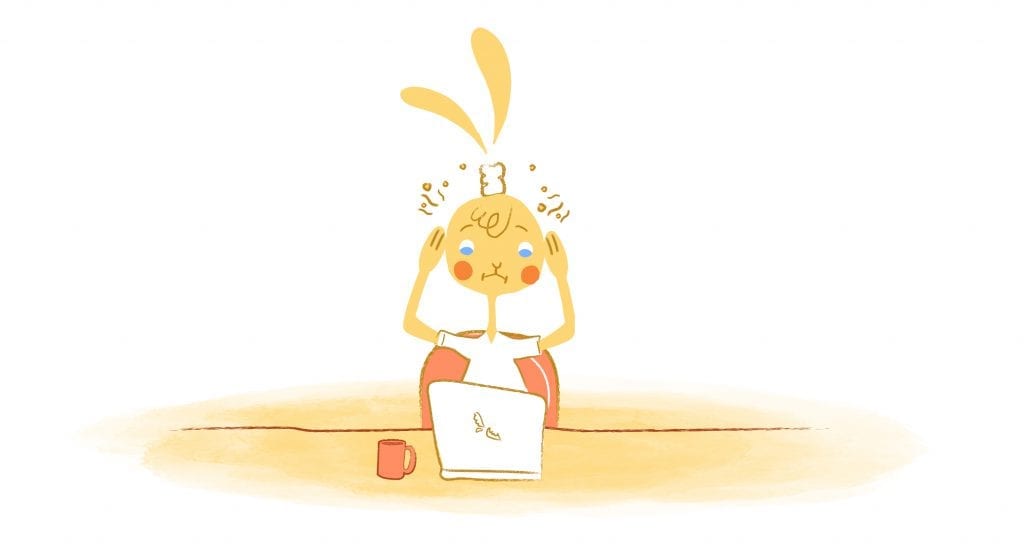

Whether you like it or not, anxiety and stress are unavoidable. Seventy-two percent of people who experience stress and anxiety daily say it impacts their lives at least moderately. It is easy to understand that lives are being affected by stress considering that stress affects seven different body systems. As a result of the invasive quality of stress — physicians have warned that stress can lead to disorders like depression, insomnia, and physical alignments like heart disease.
The thing is, not all stress and anxiety is equal. Simple stress is considered mild and can be dealt with somewhat easily. For example, you may experience a little pressure before you have to give a presentation in front of the entire office. To calm down, you may rely on breathing exercises, or talking to a colleague.
Episodic acute stress occurs when a situation arises that produces a severe stress reaction. Sometimes these episodes can begin to appear too often. If you’re continually missing deadlines, then this becomes an internal crisis. The solution may be as simple as getting more organized or learning to develop an amazing time management strategy.
Then, there’s chronic stress due to tragic situations like poverty, a broken family, or being in a toxic personal or professional relationship. This persistent type of stress and pressure is one type of stress-related issue for which you should be most concerned. Chronic stress can cause serious health problems, such as a heart attack or even suicide. The type of persistent stress concerns that are as a result of life situations which are unlikely to change — is the category kind where you need to reach out for help immediately.
Knowing that there are different types of stress, it is also valuable to understand that stress and anxiety aren’t always a terrible thing. In small doses, stress and anxiety may even assist you — and can be used to boost your productivity in the following 10 ways.
1. Reframe your thinking.
You need to reframe or change your mindset regarding stress and anxiety because not all types of stress are bad for you. You may feel a little uncomfortable when you’re under pressure because your brain feels stressed and is releasing a chemical called noradrenaline. The chemical, noradrenaline is one of those unique chemicals that is both good and bad as it increases focus and alertness and enhances your memory, and vigilance. On the flip side, this chemical also causes us to become more anxious and restless.
When there’s too much or too little of noradrenaline, we don’t function as well as we usually do when going about our daily lives. However, as Ian Robertson, a cognitive neuroscientist at Trinity College Dublin and author of The Stress Test: How Pressure Can Make You Stronger and Sharper, writes, “There’s a sweet spot in the middle where if you have just the right amount, the Goldilocks zone of noradrenaline, that acts like the best brain-tuner.”
If you’re able to control your emotions and stress levels, then stress can be beneficial. The pressure and anxiety at the moment can spark creativity and boost brain function. Eventually, your personal, emotional control can actually make you less anxious and happier, over-time. You’ll learn to keep your emotions in check while you are in the pressure cooker of stress.
So, how can you harness the power of stress? The first place to start making stress your friend is by not always thinking stress is negative or harmful. Instead, begin teaching yourself to believe that this uncomfortable feeling is helpful — so that over time your stress can become a servant to you. The more you practice this reprogrammed thinking, you’ll create positive mental connections that will make your stress more manageable.
And, one final note, start viewing your struggles as challenges that you can grow from, as opposed to a burden.
2. Use that adrenaline to your advantage.
Both stress and anxiety raise your adrenaline levels making them go through the roof. Known as the “flight or fight” hormone, adrenaline is there when there are situations where you must react immediately. A simple example of the fight or flight hormone is when you’re on your daily commute. You go to change lanes, only to spot another vehicle in your blind spot — and you almost hit them. You quickly swerve back into the freeway lane you are supposed to be in — and you feel your heart pounding excessively.
Athletes are known for using this adrenaline rush before a game to give them an energy and alertness boost. However, as explained by the Yerkes-Dodson curve, this only enhances performance to a certain point. Too much adrenaline may have the opposite effect and hinder your performance.
The next time you’re nervous about speaking in front of people, give yourself a little adrenaline rush. The purposeful use of amping-up the adrenaline hormone can make you more energetic and focused on your presentation.
3. Learn from your past experiences.
The next time you feel stress and anxiety sweep over you, take a deep breath and reflect on your situation. Reflection will always give you an opportunity to understand better what’s really causing you to feel the way you are feeling and why you are reacting the way you may be behaving. You can take this knowledge and apply it to future situations.
For example, if you’re having a panic attack because your bus is running late and you need to host a meeting, then you have a couple of options to prevent this situation from happening again moving forward. Your first option would be to catch an earlier bus — all of the time. Arrive early and work on other jobs while you are waiting for your meeting.
You will find that many options that you consider will not be possible, so brainstorm until you see other commuting options that will be the best for you. Another option would be to schedule meetings later in the afternoon. Then even if your bus is running late — at least you don’t have to worry about the late bus interfering with your meeting.
4. Get a little help from your friends.
Trying to overcome a difficult situation is much harder when you go it alone. By turning to your support system, you can alleviate your stress and anxiety. Sometimes just talking a problem or situation over with someone else can help put your mind at ease — and it gets everything off your chest. Other times a friend or colleague can suggest ways for you to overcome the obstacle that you haven’t thought of before.
Another perk of a strong support system is that you can delegate certain tasks to another person. Instead of being bogged down by all of the items on your to-do list, a colleague may take-on some of that workload for you. Receiving help not only relieves some of your responsibilities, but you may discover the other hidden talents of this individual. Going forward, you’ll be able to rely on them when you feel overwhelmed. Of course, all of these actions are those that you will want to reciprocate.
5. Channel your anxiety and stress into motivation.
Let’s say that you have to complete a project by the end of the week. As the date comes closer, you may begin to stress out cause the project is not finished. While no one enjoys that feeling of being behind, the pressure of the looming due date can motivate you to stop procrastinating and devote all of your attention to getting it done. In other words, a little bit of stress can push you to meet your deadlines and goals quicker and with greater focus.
6. Focus on what you can control.
Despite your best efforts, there will always be things that are entirely out of your hands. Is it frustrating that your bus or train is running late during your morning commute? Absolutely, but, there’s nothing you can do about that. Teach yourself to stop wasting time and energy on the things that you can’t control. Instead, focus on what you do have control over.
One way to achieve control over obsessive thoughts about things for which you have no power comes from Shawn Achor’s book, The Happiness Advantage. Achor recommends practicing the “Island Experiment.”
In the Island Experiment, you write down all of your stressors and place them into two circles called, “islands.” On one island you list the things you can control. The second circle “island” are the things that you can’t control. Achor suggests that you ignore that second island and develop a practical action plan for tackling the items on the first “island.”
7. Schedule “worry time.”
When you feel anxious, it creates a sense of urgency, and as a result, you start overthinking. Even worse, you can’t seem to stop your mind from running. “Set aside a time during the day during which you give yourself permission to worry — you can even have a reminder in your calendar,” says Katie Krimer, a licensed clinical social worker.
“Acknowledge that thinking will happen to you whether you like it or not, and some of your ruminations might make you anxious,” adds Krimer. “In the meantime, remember how good it will feel to turn those anxious thoughts into productivity and positive action.” Krimer adds, “Even doing something small and positive to address the underlying anxiety can have a profound effect on alleviating it. Either way, you’ll feel as though you’ve done more than just worry.”
8. Do a mind dump.
Grab a notebook and jot down your worries. Like talking to a friend, this can be cathartic. It sounds simple. But, this exercise of writing everything down in a mind dump gives you an outlet to unload whatever’s been bottled up inside you. Then you can begin to develop a new perspective and come up with a game plan.
9. Use anxiety and stress as an excuse to exercise.
Finally, channel your adrenaline and restlessness into physical activity. Exercise, after all, is one of the best ways to relieve stress, clear your mind, make you happier, and boost your productivity.











Howie Jones
My name is Howie and I'm a Customer Success Manager at Calendar. I like to ensure our customers get the best experience using our product. If you have questions email me howie at calendar.com